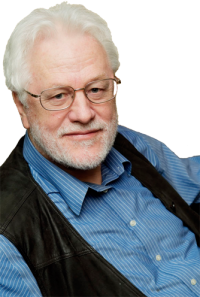
Tom Gilb
Lecturer, consultant and writer, author of the book Competitive Engineering, the „grandfather“ of evolutionary project management, USA & Norway
Value-Driven Development: Principles and Values.
Using quantified Values to Drive Software Projects. It is a role of management to deliver value to stakeholders within limited resources. How should we understand and define, what our stakeholders value? In this presentation Tom will present Competitive Engineering Process (EVO) to identify value, prioritize, develop solution and measure the impact. From project perspective we will learn, how to prepare project for being developed in Scrum, how to set up project objectives and how to set up decision criteria for prioritizing requirements. And finally, we will show how to shift systematically from function requirements to product quality requirements and why it is important.
About Tom Gilb
Tom is the author of nine books and hundreds of papers. His latest book ‘Competitive Engineering’ is a substantial definition of requirements ideas. His ideas on requirements are the acknowledged basis for CMMI level 4 (quantification, as initially developed at IBM from 1980). He wrote „Principles of Software Engineering Management“ (1988, in 2006 in 20th printing), and „Software Inspection“ (1993, about 14th printing). Both titles are really systems engineering books in software disguise. His latest book is ‚Competitive Engineering: A Handbook for Systems Engineering, Requirements Engineering, and Software Engineering Management Using Planguage‘, published by Elsevier, Summer 2005.
He is recognized as the founder or major driver of several technical disciplines such as ‘software metrics’ and ‘evolutionary project management’, as well as being an innovative pioneer in Inspections, and the inventor of the planning language Planguage. He is directly recognized as the idea source for parts of the Agile and Extreme programming methods (primarily the incremental cycles). Tom and his son Kai have recently developed their own Agile Inspections and Agile Evolutionary Project Management processes that are being successfully used by clients.
He contributes teaching and consulting pro bono worldwide to developing countries (India, China, Russia for example), to Defense Organizations (UK, USA, Norway, NATO) and to charities (Norwegian Christian Aid and others). He has guest lectured at many dozens of universities including U. C. Berkeley, Stanford, Seattle University, London School of Economics, University of Oslo, Technical University of Trondheim, TU Munich, Tampere and Helsinki Technical Universities, University of San Luis Obisbo, and The International Institute of Information Technology IIIT Bangalore.
Workshop: Evolutionary Project Management – EVO in Program section


